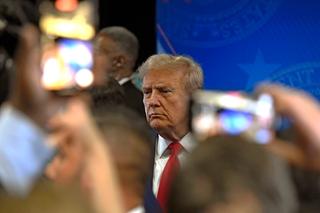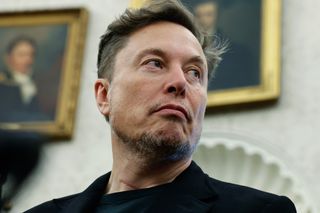With September’s US presidential debate already largely forgotten, Wednesday’s vice-presidential debate stands as one of the last significant dates on the US political calendar before a rapidly approaching November 5 election.
While vice-presidential debates excite partisan hearts, they don’t change minds.
Wednesday’s showdown between Minnesota Governor Tim Walz and Ohio Senator JD Vance will matter little for the 2024 election –but it could be our best preview of the 2028 election in four years’ time.
Those who watched Kamala Harris’ 2020 debate against Mike Pence would not have been surprised to hear Harris in 2024 focus on her middle-class upbringing and be attacked for her past opposition to fracking.
Her 2024 campaign messaging – and Republican attacks against her shifting policy positions since her failed 2019 presidential campaign – debuted nationally on the 2020 debate stage.
Early exposure
If either 2024 vice-presidential candidate runs for president in future years, the contours of their campaign will be drawn on Wednesday (Australian time).
For his part, Walz is not believed to harbour presidential ambitions.
His possible vice presidency is understood as a capstone for a political career that Walz himself has described as “at the end”, rather than a stepping stone on the way to the Oval Office, as it may have been for other Democratic VP options.
Vance, on the other hand, is widely considered heir apparent to Trump’s MAGA movement and instantly became a leading 2028 presidential contender upon his selection as Trump’s running mate.
Depending on the election result in November, the 2028 Republican primaries will either be an opportunity to succeed a term-limited president Trump, or a chance to claim leadership of the Republican party even if an electorally-damaged Trump were to run for a fourth time at age 82.
Thus far in the campaign, Vance has struggled to escape negative headlines amid awkward campaign moments and controversial comments about women and immigrants.
On the issue of abortion, Trump appeared to distance himself from Vance on the debate stage in September and Vance now says he has “learned his lesson” about speaking for Trump.
This debate may prove Vance’s only opportunity in this election to reverse his historically low favourability ratings.
Undercard debate
Vice-presidential clashes almost always lag far behind US presidential debates in viewership figures.
Just under 58 million viewers watched 2020’s debate between Harris and Pence, compared to more than 70 million for the first debate that year between Biden and Trump.
Less than half of the record-breaking 84 million viewers for the first Clinton-Trump debate in 2016 tuned in a week later to watch Pence and Democrat Tim Kaine go head to head.
And even with an audience numbering in the millions, VP debates don’t shift the polls.
A week after viewer polls showed a clear win for Harris in the 2020 vice-presidential debate, presidential polls had shifted by just 0.4 points … away from the Biden-Harris ticket.
Even smaller polling changes occurred after the debates in 2008 and 2012. The 2016 debate was quickly forgotten after the release just three days later of the infamous Access Hollywood tape.
‘Do no harm’
It is telling that still the most enduring moment in a vice-presidential debate came almost four decades ago in the form of Democrat Lloyd Bentsen’s withering “Senator, you’re no Jack Kennedy” remark, which forever damaged Republican Dan Quayle’s public image.
Yet that came just a month before Quayle and George HW Bush won the 1988 election in a landslide.
“Do no harm” remains the overriding instruction to vice-presidential debaters, and both sides will certainly attempt to expand their voter bases as best they can.
But while no vice-presidential debate has yet moved an election year needle, every one as far back as the first clash between Bob Dole and Walter Mondale in 1976 has featured at least one vice-presidential candidate who later ran for president – and two-thirds of the debates have featured a future presidential nominee.
Eye to the future
VP debates differ from their presidential counterparts because both participants have an eye to the future.
It is an opportunity to improve their standing within their own parties and demonstrate that most coveted of electoral qualities – appearing ‘presidential.'
A September poll found a third of Americans still lack awareness of either vice-presidential candidate, making this prime-time appearance by far their best opportunity to introduce themselves to the wider electorate.
Doing so rarely makes a difference in the election at hand. But it can help establish a vice-presidential nominee as a future presidential candidate.
If you watch the debate, don’t expect to witness a moment that sways the 2024 race.
Tens of millions of Americans who viewed September’s debate between Harris and Trump certainly won’t bother tuning in.
What matters in Wednesday’s clash will be how the candidates – Vance in particular – align or distinguish themselves from the top of their ticket, and how they present themselves to their party base. It could make all the difference in 2028.




.jpg?rect=0,80,3000,1989&fp-x=0.5&fp-y=0.44772296905517583&w=320&h=212&fit=crop&crop=focalpoint&auto=format)



.jpg?rect=0,3,6240,4154&w=320&h=213&auto=format)
